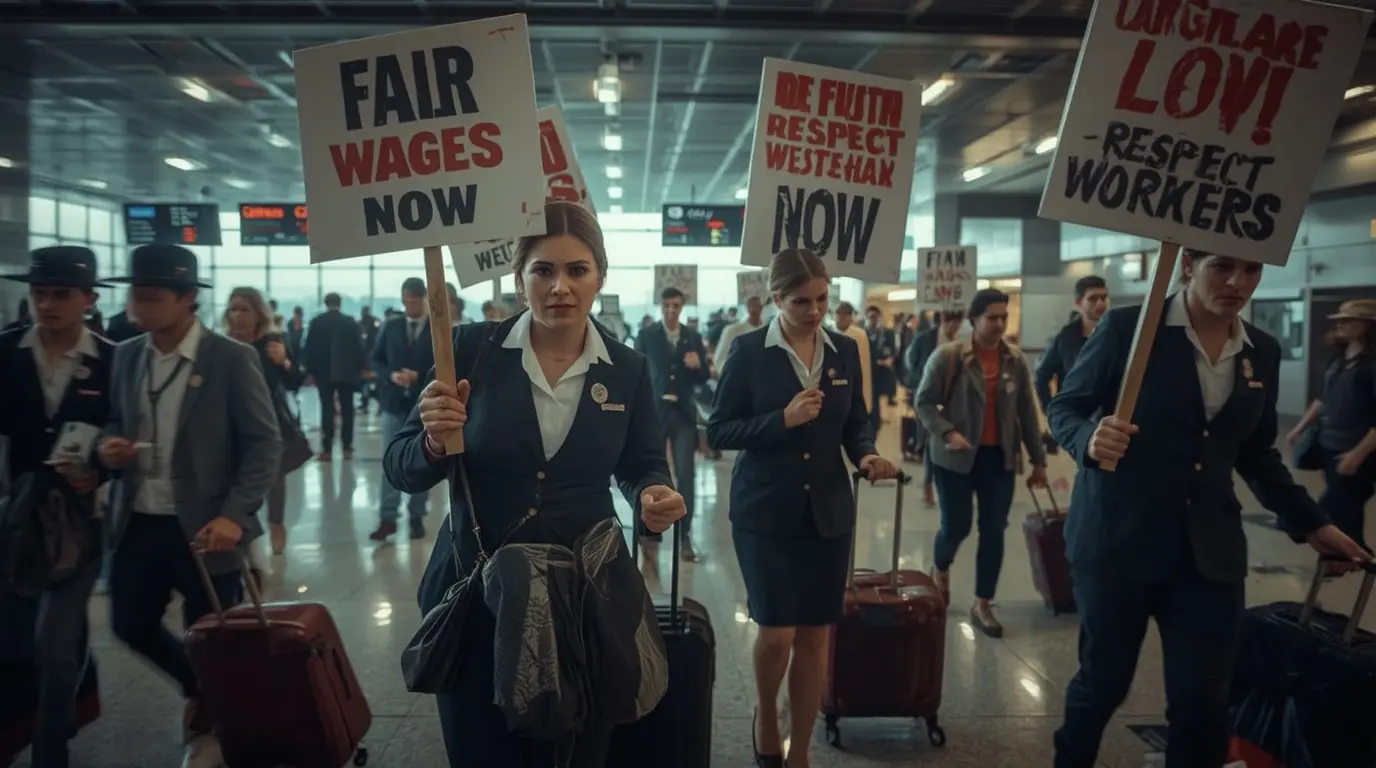Air Canada and its flight attendants are back at the bargaining table today, and the talks could decide how soon the turbulence ends. The strike, which now has thousands of flyers stuck and hundreds of cancellations, has shaken travel plans across Canada and beyond. Questions are growing about whether the airline can keep flights on schedule when summer travel peaks.
The Situation So Far
After months of talks hit deadlock, over 9,000 flight attendants, backed by the Canadian Union of Public Employees (CUPE), began the walkout last week. They are pushing for better pay, safer working conditions, and more job security. The move quickly grounded thousands of travelers, especially on domestic and cross-border runs, and the airline rolled out back-up plans that include putting some passengers on rival jets when it can.
Travelers at Toronto Pearson, Vancouver International, and Montréal-Trudeau airports are feeling the squeeze. Lines are long, tempers are short, and many have taken to Twitter to vent.
“I’ve been stuck for three days trying to get home,” said one frustrated flyer. “Air Canada keeps promising to rebook me, but there are still no seats open.”
Why Are Flight Attendants Striking?
The dispute between Air Canada flight attendants and the airline centers on several key points:
Pay: The flight crew is asking for pay increases that keep pace with today’s inflation and the rising cost of living. The union points out that the attendants’ pay has lagged behind that of counterparts at other big carriers.
Scheduling and Fatigue: Crew members report that unpredictable schedules and long hours are pushing them to the limit. Many say they have to work consecutive days and overnight flights with little time to recover in between.
Job Security: As Air Canada has started to outsource more work to contractors, attendants are worried about potential job losses and the erosion of benefits.
CUPE National President Mark Hancock said, “The frontline workers who keep Air Canada operating every day deserve pay that reflects their contributions and schedules that let them rest. The airline is profitable. It’s time to pass some of that profit to the workers who made it happen.”
Air Canada’s Position
In reply, Air Canada said it is still committed to finding a fair contract but warned that it must weigh union requests against the airline’s overall financial situation.
“We know this strike has been a real headache for our customers, and we’re working around the clock to limit the impact,” a company spokesperson said. “We’re still optimistic that negotiations will wrap up with a positive outcome soon.”
The airline has proposed a 12% pay raise spread over four years, but the union labeled the offer a no-go, arguing it falls well short of what workers deserve.
Impact on Travelers
The timing of the walkout couldn’t have been worse. August is peak travel season for Air Canada, with families coming home from summer trips and students getting ready to head back to school.
Cancellations
Since the strike started, more than 300 flights have been scrapped.
Refund Policies
The airline is providing refunds and rebooking choices, yet many passengers say it’s been a struggle to land alternate flights.
Alternative Airlines
Rival carriers like WestJet and Porter Airlines are now busier than ever, and ticket prices have crept up as a result of the tight seat inventory.
Government Intervention Possible?
For now, the federal government is staying on the sidelines and encouraging both sides to keep talking. However, if no deal is reached soon, some lawmakers may start pushing for binding arbitration or back-to-work orders—steps that could stir debate but may also short-circuit wider economic fallout.
Federal Labour Minister Seamus O’Regan said, “We encourage Air Canada and CUPE to find a solution that works for everyone. The best deals are made at the bargaining table.”
What Happens Next?
With bargaining back on the table today, experts are cautiously hopeful a deal could be wrapped up within days. On the other hand, another breakdown could push a strike deep into September, leading to even larger travel headaches.
Until then, travellers should:
- Always check flight status before going to the airport.
- Think about purchasing travel insurance for future trips.
- Look into other travel options when possible.
Final Thoughts
This Air Canada strike shows the rising friction between airlines and their workers as travel rebounds after COVID-19. Employees want better pay and conditions; airlines are still trying to recover from years of financial losses.
Whatever happens in these talks will affect Air Canada’s workers and could influence other airlines facing the same issues. To protect both crews and customers, a quick and fair solution is critical.
Source: https://edition.cnn.com/2025/08/18/business/air-canada-strike-flight-attendants-resume-talks-hnk
For more news updates, visit our home page.




